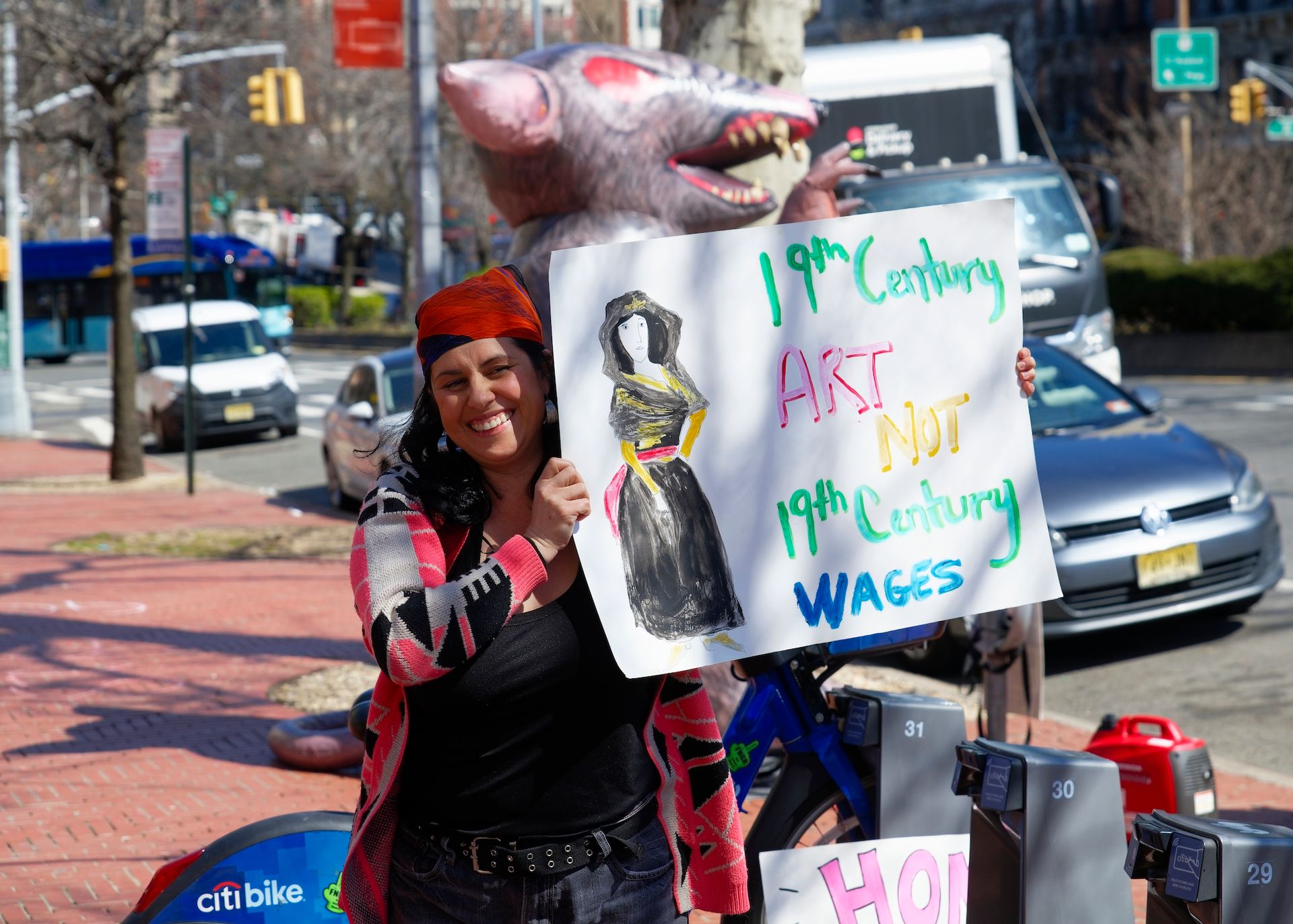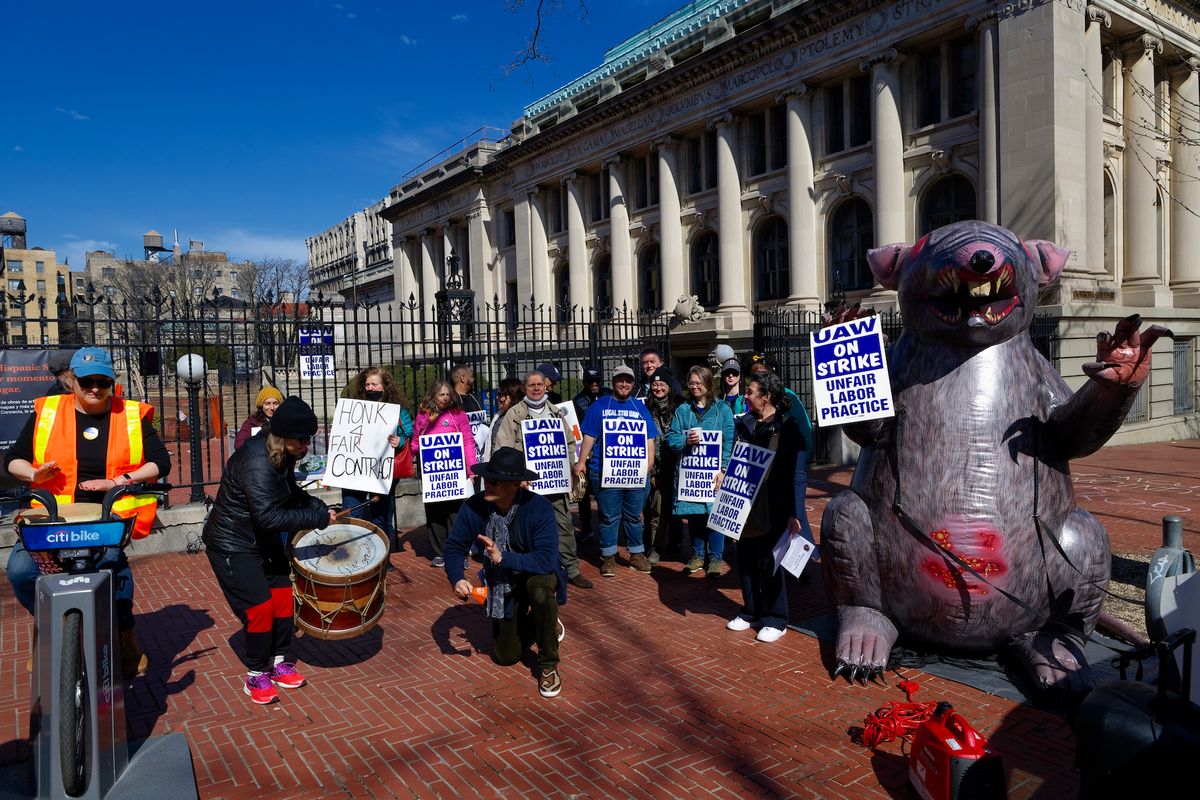Staff at the Hispanic Society Museum and Library in New York City have been on strike since 27 March, with union members, representatives of their United Auto Workers (UAW) local and local lawmakers joining the picket line at the institution’s Washington Heights campus.
The strike comes as members of the museum’s union, which formed as part of UAW Local 2110 in 2021, seek to reach an agreement with museum administrators on their very first contract. The timing is especially significant as the Hispanic Society’s museum—home to a world-class collection of art from Spain, Portugal and their former colonies in the Americas—was due to reopen on 6 April after a six-year closure for extensive renovations.
That reopening has now been delayed until an unspecified date this spring, due to the strike and other delays, a Hispanic Society spokesperson says. “Aside from the current situation, there have also been some construction delays, most critically of which is a delay of the [Americans with Disabilities Act-compliant] ramp that will offer visitors accessible access to the main building,” the spokesperson says.
The strike was authorised in a 21 March vote with a 78% majority. Workers at the institution first came together in 2021 after after the administration did away with pensions. In the past two years, the union has filed four unfair labor practice complaints against the museum with the National Labor Review Board (NLRB). Nevertheless, John O’Neill, a curator at the Hispanic Society and member of the bargaining committee, says that the strike has “been going fairly well” and that workers’ spirits were high.
In February, staff issued an open letter to the institution’s board of trustees, which is headed by Philippe de Montebello, the former director of the Metropolitan Museum of Art. The letter outlined issues including understaffing that, workers claim, makes it difficult to properly maintain and safeguard the collection, concerns regarding recent administrative appointments, difficult working conditions and an unclear roadmap to reopening the museum building. (During the renovations, the Hispanic Society library has remained open and held temporary exhibitions.)
The museum’s staff are also demanding better healthcare coverage, including asking the museum to cover the cost of insurance premiums, which it did in the past.

An employee of the Hispanic Society Museum & Library on the picket line Courtesy UAW Local 2110
“We’ve been trying to negotiate a contract for over a year, and negotiations really broke down over health benefits,” says Maida Rosenstein, director of organising for UAW Local 2110. “The Hispanic Society has been pushing against the union from the very beginning. They hired [the law firm Epstein Becker & Green] and they ran an anti-union campaign, but it did not work. People voted to form a union.”
The most recent offer from the museum would require staff to pay for their own healthcare premiums and deductibles. Wages would go up but, according to Rosenstein, not enough to cover the increase in healthcare costs.
“The salaries are not high, and you’re talking long-term professionals, curators, conservators, librarians, etc. and they make very little money, what sustained them was the benefits,” Rosenstein says.
“One of the last points we must come to an agreement on is health insurance,” a Hispanic Society spokesperson says in a statement. “The Hispanic Society presented a proposal whereby employees would be asked to cover between 2.5% and 12.5% of the premium, based on income. The union insists that the Society pay 100% of the costs of healthcare premiums and deductibles. This union has contracts with other museums in the city where employees contribute towards the cost of medical coverage.”
Members of the union’s bargaining committee and administration met earlier this week for a nine-hour negotiating session, but as of this writing no resolution has been reached. “The lines are not clearly defined where we stand,” O’Neill says.
The contract currently on offer from the administration, according to the Hispanic Society spokesperson, includes a signing bonus of $4,000 for new hires, retroactive wage increases of 5%, guaranteed future wage increases, “competitive health and retirement benefits including guaranteed contributions by the Society, as well as generous vacation time—up to five weeks based on seniority. Additionally, the proposal includes a guaranteed minimum salary for all union positions, ranging from a minimum salary of $52,000 to a minimum salary of $95,000 depending on the role.



